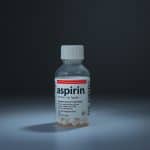Creatine Supplement Guide: Benefits, Safety, and How to Use It

Introduction
Creatine is one of the most popular supplements used by athletes, gym-goers, and even researchers exploring its effects on brain health. Patients often ask if creatine is safe, who should take it, and how to use it correctly. This article breaks it all down.
What Is Creatine?
Creatine is a natural compound found in muscle cells. It helps your body make ATP (adenosine triphosphate), the main energy source for explosive movements like sprinting, jumping, or weightlifting. Your body produces some creatine naturally, and you also get it from foods like red meat and fish. Supplementing with creatine raises muscle creatine stores above normal dietary levels.
Why People Take Creatine Supplements
- Improved exercise performance: More strength and power during workouts
- Increased muscle growth: Supports muscle protein synthesis
- Faster recovery: May reduce fatigue after intense workouts
Research is also exploring creatine’s potential role in brain health and fatigue management, though more studies are needed.
Is Creatine Safe?
Yes. Creatine is one of the most studied supplements in the world and is safe for healthy adults when taken at the recommended dose (3–5 g/day). People with kidney disease or chronic medical conditions should consult a healthcare provider before starting supplementation.
How to Take Creatine
Option 1: Loading Phase
20 g per day (split into 4 doses) for 5–7 days, then switch to 3–5 g/day for maintenance.
Option 2: No Loading Phase
Take 3–5 g/day from the start. Results appear more gradually, but this method works just as well over time.
Pro Tip: Take creatine with carbs or after a workout to improve absorption.
Possible Side Effects
Creatine is generally well-tolerated. The most common effect is mild water retention (temporary weight gain). High doses may cause stomach upset in some people.
Myth Busting: There is no strong evidence that creatine harms healthy kidneys.
Who Should Avoid Creatine
- People with kidney disease or chronic health conditions (unless cleared by a physician)
- Pregnant or breastfeeding women (insufficient safety data)
Choosing the Right Creatine Supplement
Creatine monohydrate is the most studied, most effective, and most affordable form. Other types (creatine HCl, buffered creatine, liquid creatine) have limited research support.
Creatine for Teens
Research in teens is limited. Creatine may be safe for adolescent athletes, but it should be used under medical or professional supervision.
Bottom Line
Creatine is a safe, effective, and well-researched supplement for building strength, power, and muscle when used correctly. If you are healthy and want to enhance your workouts, creatine is worth considering. If you have kidney issues, chronic conditions, or are under 18, consult a doctor before using creatine.
Dr. Ilhem Remmouche a board-certified physician in internal medicine and obesity medicine, serving as a senior author/contributor at LifeInBalanceMD.
Note: Content is educational and not a substitute for personalized medical care.
Life in Balance MD is led by Dr. Amine Segueni, a board-certified physician dedicated to delivering clear, evidence-based health insights. His passion is helping readers separate facts from myths to make smarter, healthier choices. Content is for educational purposes only and not a substitute for medical advice.











Pingback: DDitch the Myth: Your $10,000 Peptide Stack Is Mostly Hype — What Lab Tests Really Reveal